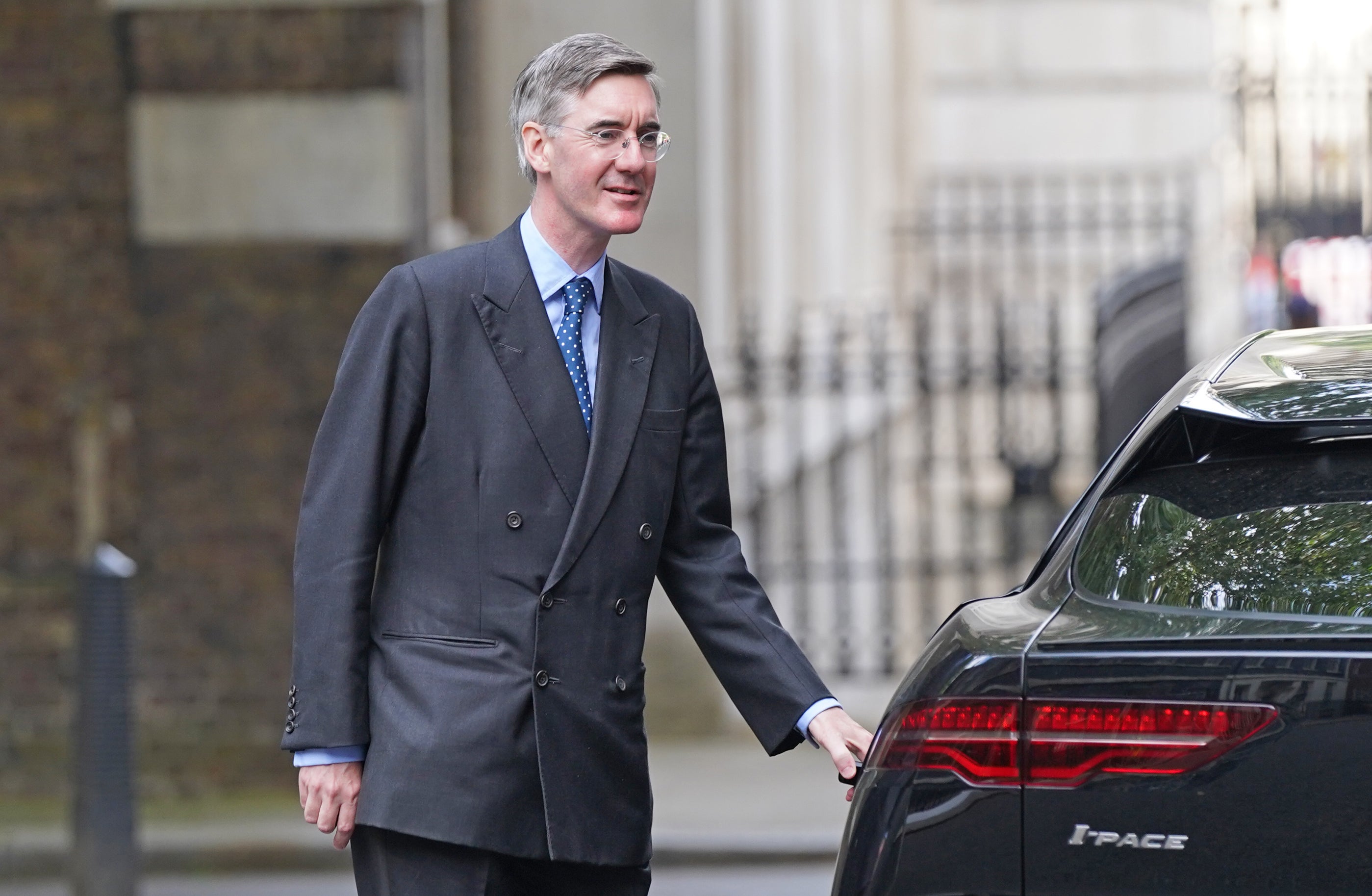Labour ought to oppose Jacob Rees-Mogg’s fantasy economics, not support it
The leader of the Commons called for the April tax rise to be scrapped when the cabinet met this week – Labour shouldn’t make common cause with him, argues John Rentoul


It is not often that Jacob Rees-Mogg is called a socialist. Thangam Debbonaire, his Labour shadow, asked him yesterday if he was “more socialist than he has hitherto let on”, given the leak from the previous day’s cabinet meeting that he had suggested scrapping the tax rise due in April. That is something that Labour has been calling for since September, when the law was passed, Debbonaire said. “I wonder whether he is about to cross the floor, because there is space.”
Something has gone very wrong for Rees-Mogg when he finds himself supported by the Labour Party. But equally, something has gone very wrong for Keir Starmer when he supports the fake Thatcherism of the Conservative Party. Sometimes, making common cause with one faction of the governing party is an effective opposition tactic. But not this time.
Rees-Mogg’s position lacks basic plausibility. At least he is consistent in that. He opposed the tax rise when it was bounced through the cabinet in September – not so strongly that he resigned from the government, of course, but he spoke up against it, as did Liz Truss, now the foreign secretary, and David Frost, who has now resigned from the government.
In September, Truss argued that Rishi Sunak, the chancellor and her rival for the post-Johnson leadership, should borrow the money to pay for the NHS instead. This week, Rees-Mogg suggested that the government should cut spending elsewhere. This is fantasy economics, and Conservative backbenchers – not to mention the Labour Party – should have nothing to do with it.
The Conservative Party seems to be going through some kind of ideological nervous breakdown, a delayed reaction to its election victory two years ago, exacerbated by the coronavirus response.
There are some slow learners in the party who were not paying attention when Boris Johnson published a manifesto in 2019 that combined Brexit with New Labour. He promised higher public spending on the NHS, schools and police, and won a big majority for it. Then, when the virus struck a few months later, he doubled the bet, asking WWGD – “What Would Gordon Do?” Gordon Brown would spend vast sums of borrowed money in a neo-Keynesian effort to save jobs, Johnson and Sunak concluded.
So when the time came to pay for it all, with the NHS in a desperate state after the ravages of the pandemic, the question was asked again. WWGD? He would put up taxes, of course, as he did in 2002, explaining that it was the fiscally responsible thing to do.
Johnson, Sunak and Sajid Javid need not have chosen that course. They could have done what Truss advocated in September and borrowed yet more money; or they could have done what Rees-Mogg advocated this week and cut back on public spending – by not spending more to try to deal with the NHS backlog, and by returning to “austerity” by spending less on other departments.
Those are both bad ideas. Johnson was right to choose the course of raising taxes instead, and Labour should support him. So too should the cardboard Thatcherites on the Conservative side of the Commons. A true supporter of Margaret Thatcher would know that she was prepared to take the tough decisions to restore the national finances in 1979, including nearly doubling VAT. She would have been horrified by Truss, and dismissive of Rees-Mogg. She would have had little time for those Tory MPs complaining about inflation pushing more people into paying income tax at the standard and higher rates. Or for those calling for a VAT cut on energy bills. And she might have called those talking about a cost-of-living crisis “moaning minnies”. She would have called for national sacrifice to get us through the emergency.
To keep up to speed with all the latest opinions and comment sign up to our free weekly Voices newsletter by clicking here
And Starmer and Rachel Reeves, the shadow chancellor, shouldn’t be supporting Rees-Mogg and his band of pretend Thatcherites. Labour is trying to be too clever, by supporting the increased public spending but suggesting that it can be paid for by raising different taxes and cutting government waste. They have a point, in that housing wealth, especially at the more expensive end of the market, is one potential source of revenue that the Conservatives are reluctant to tap. But Reeves is not proposing a full-fat mansion tax or council tax revaluation; the most she will do is point out that “landlords renting out dozens of properties” won’t pay more.
Labour is trying to have it both ways, pointing out that the national insurance rise falls on “working people” without saying it would be fairer to put up income tax, which would include rent and interest.
Pretending to support Jacob Rees-Mogg and refusing to say how a Labour government would pay for the NHS is no way to restore Labour’s economic credibility.






Join our commenting forum
Join thought-provoking conversations, follow other Independent readers and see their replies
Comments